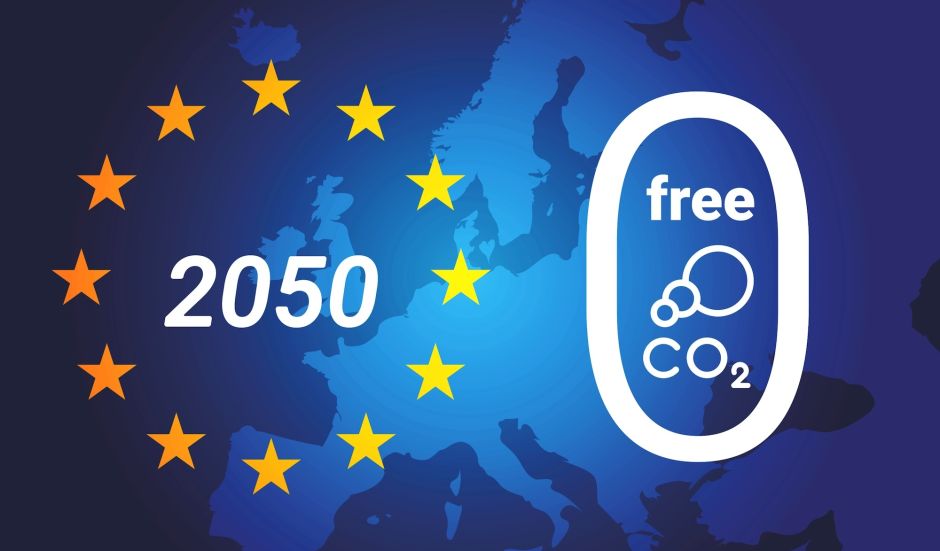New Report Analyzes EU Maritime Research and Innovation

Over the past five years, nearly one billion euros have been invested in research and innovation aimed at reducing carbon emissions in European maritime transport. This is stated in a new report from the European Commission's Joint Research Centre (JRC), which evaluates 151 EU-funded projects.
Between 2020 and 2024, the EU invested close to one billion euros to make waterborne transport less dependent on fossil fuels. According to the report Research and Innovation supporting the decarbonisation of the European Waterborne Sector, this funding was distributed across 151 projects—most of them under the Horizon 2020 and Horizon Europe research programs. Compared to the previous review in 2021, there is a clear increase in both the number of projects and the amount of funding invested. Two out of three projects focus on technical solutions, while the rest address operational measures and coordination to accelerate the transition.
Key Findings from the Report:
In the area of ship design, several projects have demonstrated that new constructions and lighter materials can contribute to lower energy consumption and reduced emissions. There is also a clear need to shorten testing and approval processes to bring new technologies to market more quickly. Lightweight materials in larger vessels are seen as having significant potential for fuel savings, and more flexible, modular design solutions are in demand—both for new builds and for retrofitting existing ships.
Propulsion and energy systems represent another rapidly evolving field. Wind assistance, electrification, and alternative fuels such as ammonia, hydrogen, methanol, and biofuels have shown great potential for both climate benefits and energy efficiency. However, these solutions require investments in infrastructure and adapted regulations to enable widespread use. Several projects also highlight the need for new business models, standardization, and safe onboard handling—particularly for new fuels.
When it comes to electrification, it's not just about technology, but about the entire system—from onboard energy management to port-side power grids. To achieve widespread adoption, full-scale demonstration projects and solutions that also work for existing ships are needed.
The report also shows that digitalization plays a key role in improving the efficiency of maritime transport. Technologies like AI, digital twins, and large-scale data analysis can enhance route planning, reduce fuel consumption, and integrate ships, ports, and distribution into a unified logistics solution. Shore power in ports is highlighted as a concrete example of digital and technical innovation with significant climate benefits.
Operational measures are also crucial. Smart logistics solutions, automation, and improved route planning can reduce emissions without changing the ships themselves. Shifting more cargo from road and rail to coastal and inland waterway transport is emphasized as an important step toward more sustainable logistics. For this to happen, investments in infrastructure, improved logistics flows, and better intermodal coordination are required.
The report also identifies common research needs—including safety certification, standards, and social factors such as crew competence and local acceptance. Infrastructure, both in ports and inland, needs to be adapted for the storage and handling of new fuels. To ensure a broader transition moving forward, more data from real-world operations is needed, not just from test environments.
In summary, the report shows that Europe’s waterborne sector is moving away from fossil fuel dependence—but that the transition requires a combination of technical innovation, smart regulations, social acceptance, and coordinated logistics.
-
 NextWave – en podd som ska locka unga
NextWave – en podd som ska locka unga -
 Ny studie: Eldrivna pendelbåtar kan effektivisera Stockholms kollektivtrafik
Ny studie: Eldrivna pendelbåtar kan effektivisera Stockholms kollektivtrafik -
 Sjöfartens utsläpp ökar
Sjöfartens utsläpp ökar -
 Sociala relationer påverkar val av bränsle
Sociala relationer påverkar val av bränsle -
 Sjöfartens omställning kräver ”mjukare” påtryckningar
Sjöfartens omställning kräver ”mjukare” påtryckningar -
 Hon hade avtalad tid med Kapten ynkrygg
Hon hade avtalad tid med Kapten ynkrygg -
 Lighthouse omvärldsanalys 2025 – osäkerhet och tullar präglar sjöfarten
Lighthouse omvärldsanalys 2025 – osäkerhet och tullar präglar sjöfarten -
 Se seminariet Shipping in the Marine Environment
Se seminariet Shipping in the Marine Environment -
 Vad betyder egentligen de 90 procenten?
Vad betyder egentligen de 90 procenten? -
 Hålla där...
Hålla där...

